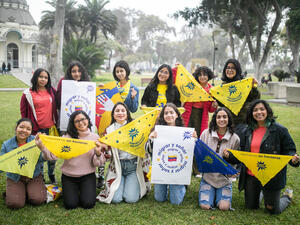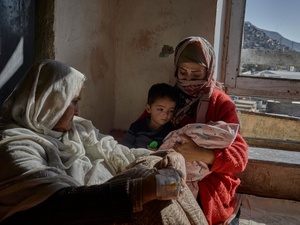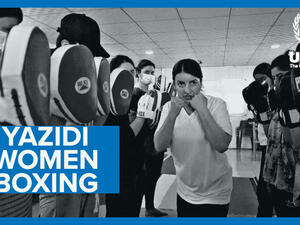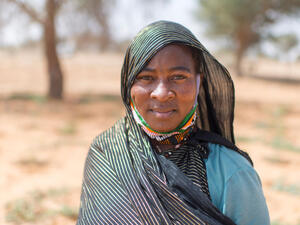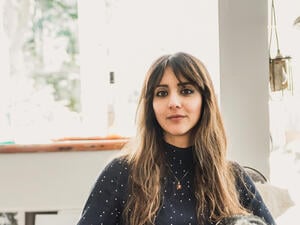Stronger roles for women in peace process and refugee camps, urges report
Stronger roles for women in peace process and refugee camps, urges report

Somali refugees participating in peace education in Kenya's Ifo camp. Women should be included in peace-building efforts, says a new UNIFEM report.
GENEVA, Jan 22 (UNHCR) - UN High Commissioner for Refugees Ruud Lubbers today called on women to do more to influence "political priorities", urging them to speak out against political agendas that do not take into account what is important to them.
Speaking in Geneva at the launch of an assessment report on the impact of armed conflict on women and their role in peace-building, Lubbers said women can play a stronger role in conflict resolution as they tend to approach conflict resolution in a practical way.
"The way women address conflict is different because women find a practical way to resolve conflicts," said Lubbers.
The report, "The Independent Experts' Assessment on the Impact of Armed Conflict on Women and the Role of Women in Peace Building", was commissioned by the United Nations Development Fund for Women (UNIFEM) in close collaboration with the United Nations Population Fund (UNFPA) and UNHCR.
Launching the report, UNIFEM Executive Director Noeleen Heyzer, who also gave the opening statement, described the experts' assessment as an "important tool for change" that provides a useful opportunity for people working with women to "move rhetoric into action".
Heyzer lamented the fact that although the nature of war had changed, with belligerents using women as "weapons of war", the humanitarian community had not adequately modified the protection and delivery of assistance to meet the changing needs of those affected by war.
"We need to understand that the nature of war has changed and is taking its toll on civilian populations, mainly women and children," said Heyzer. "Given this change, the way we deliver protection and assistance has to change because the environment has changed. Yet, delivery has not changed in the same way."
Summarising the experts' recommendations, the UNIFEM chief called for more efforts at conflict prevention and early warning, as well as better protection of women and the establishment of justice systems - including witness protection - to counter a culture of impunity. She also noted the experts' recommendation for the inclusion of women at the peace table and for more gender-sensitive reconstruction programmes. Panelist Bineta Diop, however, pointed out that "only those with guns were allowed at the peace table".
On refugee women, the report's authors urged organisations to ensure that refugee and internally displaced women play a key role in camp planning, management and decision-making so that gender issues are taken into account in all aspects, especially resource distribution, security and protection.
Lubbers said UNHCR is already taking steps to ensure that refugee women are treated as partners and that more places are allocated to them in camp management committees.
"Two years ago, we had a global dialogue with women about policies and strategies. One of the key points I remember from the women was that they did not want to be considered just as beneficiaries but also as partners," said Lubbers.
He added that UNHCR offices worldwide had until June this year to report back on the implementation of five commitments he made in 2001 to improve the situation of refugee women. One of these was a pledge to increase to 50 per cent the representation of refugee women in camp management committees.
The meeting's participants called on the UN, including the refugee agency, to also increase the number of women in senior positions so as to strengthen its own position when pressing for the inclusion of women at peace tables or in refugee camp management committees.



